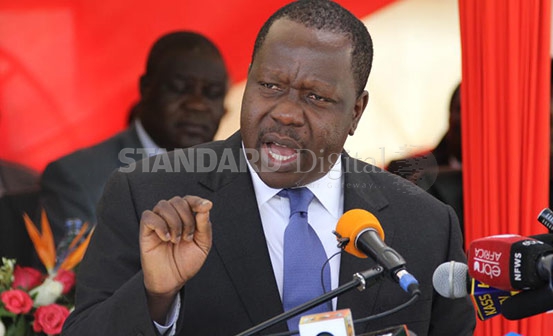×
The Standard e-Paper
Fearless, Trusted News

Education Cabinet Secretary Fred Matiang’i blew the whistle on a cabal of corrupt officials at the Kenya National Examinations Council (Knec).
The Standard on Sunday has exclusively obtained detailed communication from Dr Matiang’i to the Directorate of Criminal Investigations (DCI) raising suspicion on the conduct of members of the now disbanded Knec board and top secretariat officials.